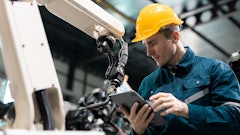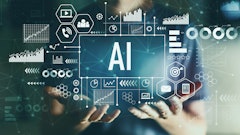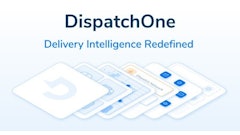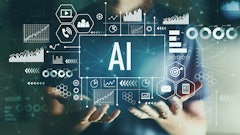
Modern freight strategy goes beyond cutting costs; it’s about building resilience. In today’s rapidly changing trade environment, resilience starts with how goods move after they land. As AI becomes a cornerstone of logistics, its potential isn’t as a replacement for human expertise but as a tool to amplify it. When combined, AI and human judgment create a logistics system that’s faster, smarter, and more adaptable than ever before.
AI is transforming supply chains, driving efficiencies and simplifying routine tasks. But there are still moments when human expertise, creativity, and empathy are essential to deliver exceptional customer experiences and navigate complex logistics challenges.
1. Exception handling and problem solving
While AI is invaluable for tracking shipments and optimizing routes, logistics is inherently unpredictable. Delays, weather disruptions, and damaged goods can’t always be fixed by automation. These situations require human intervention, someone who can make real-time decisions, understand the nuances of the problem, and find a solution that a machine simply can’t.
Imagine a shipment stuck at customs due to missing paperwork. AI might notify the team about the delay, but only a logistics coordinator can resolve the issue, whether by negotiating with authorities or quickly gathering the required documentation. Here, AI helps keep the process moving, but human judgment ensures the problem is resolved efficiently.
2. Relationship management
In logistics, particularly with time-sensitive deliveries or urgent customer needs, a personal touch makes all the difference. AI can handle routine tasks, but it lacks the ability to empathize with customers or make quick, thoughtful decisions when issues arise. It’s in these critical moments that humans excel, showing empathy, understanding, and the ability to solve problems creatively.
Consider a customer who’s ordered a special seafood package for a holiday dinner, only to discover it’s delayed due to a route issue. An automated refund doesn’t cut it. A human agent can step in, understand the urgency, reroute the order from a nearby distribution center, and offer a personalized apology. This kind of service not only fixes the problem but also creates a loyal customer for life.
3. Ethical judgments
Supply chain decisions often extend beyond efficiency and cost; they touch on ethics, sustainability, and brand values. While AI can analyze data and follow rules, it lacks the ability to consider broader consequences, such as labor practices, environmental impact, and compliance with local laws. These decisions require human oversight to ensure they align with a company’s values and customer expectations.
A retailer may need to choose between two carriers: one offers faster delivery but has questionable labor practices, while the other is union-compliant but slightly more expensive. An AI system can’t evaluate the ethical implications of this decision, but a human decision-maker can weigh the long-term impact on the brand’s reputation and customer loyalty, ensuring the choice reflects the company’s values.
The future of logistics: A hybrid approach
The supply chain industry is embracing a future where AI and human expertise work hand in hand. AI excels at automating routine tasks, managing data, and driving efficiency at scale. But human judgment remains essential for navigating complexity, making ethical decisions, and building strong, lasting relationships with customers.
The future isn’t just about automating processes; it’s about creating agile, tech-driven systems that balance speed and flexibility with a personal touch. By combining the strengths of both AI and human expertise, companies are building resilient, future-ready supply chains that adapt to change while keeping customers at the heart of the experience.



















